-
×
 Heart Awakenings By Unlock Your Design Academy
1 × $46,00
Heart Awakenings By Unlock Your Design Academy
1 × $46,00 -
×
 Training Session - Half-Guard by Roberto Gordo
1 × $6,00
Training Session - Half-Guard by Roberto Gordo
1 × $6,00 -
×
 Buddhism By Malcolm David Eckel
1 × $5,00
Buddhism By Malcolm David Eckel
1 × $5,00 -
×
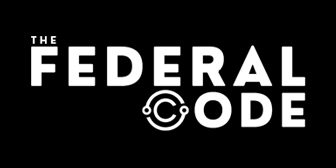 The Federal Code Government Contracting By Jason White
1 × $23,00
The Federal Code Government Contracting By Jason White
1 × $23,00 -
×
 Trend-Rev Block And Ea Forex System - No Mt4 Indicator - By Ifxsuccess
1 × $69,00
Trend-Rev Block And Ea Forex System - No Mt4 Indicator - By Ifxsuccess
1 × $69,00 -
×
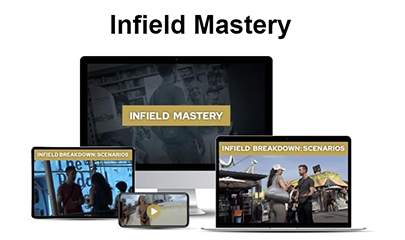 Infield Mastery Program By Matt Artisan
1 × $69,00
Infield Mastery Program By Matt Artisan
1 × $69,00 -
×
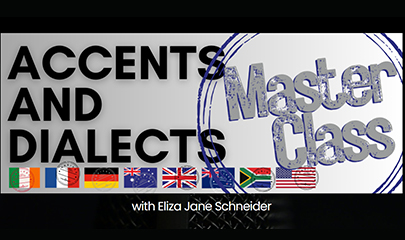 Accents and Dialects Master Class By Eliza Jane Schneider
1 × $62,00
Accents and Dialects Master Class By Eliza Jane Schneider
1 × $62,00 -
×
 The Virtual Workshop By John Wineland
1 × $39,00
The Virtual Workshop By John Wineland
1 × $39,00 -
×
 The Federal Code Blueprint 2023 2.0 By Jason White
1 × $23,00
The Federal Code Blueprint 2023 2.0 By Jason White
1 × $23,00 -
×
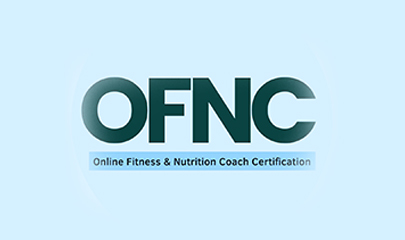 Online Fitness And Nutrition Coach By Dala McDevitt - DLDNation
1 × $319,00
Online Fitness And Nutrition Coach By Dala McDevitt - DLDNation
1 × $319,00 -
×
 Super Shoulders By Got Rom
1 × $23,00
Super Shoulders By Got Rom
1 × $23,00 -
×
 Awakening Female Pleasure Online Course: Heal and Empower Your Partner By Eyal Matsliah - Beducated
1 × $5,00
Awakening Female Pleasure Online Course: Heal and Empower Your Partner By Eyal Matsliah - Beducated
1 × $5,00 -
×
 The 4 Cycles of Shaolin Qigong by Robert Peng - The Shift Network
1 × $54,00
The 4 Cycles of Shaolin Qigong by Robert Peng - The Shift Network
1 × $54,00 -
×
 Professional Python Web Development with Flask By Stone River eLearning
1 × $6,00
Professional Python Web Development with Flask By Stone River eLearning
1 × $6,00 -
×
 Wealth Academy By Brian Rose
1 × $23,00
Wealth Academy By Brian Rose
1 × $23,00 -
×
 A History of British India By Hayden Bellenoit
1 × $5,00
A History of British India By Hayden Bellenoit
1 × $5,00 -
×
 The Complete Guide to Multiple Time Frame Analysis & Reading Price Action By Aiman Almansoori
1 × $13,00
The Complete Guide to Multiple Time Frame Analysis & Reading Price Action By Aiman Almansoori
1 × $13,00 -
×
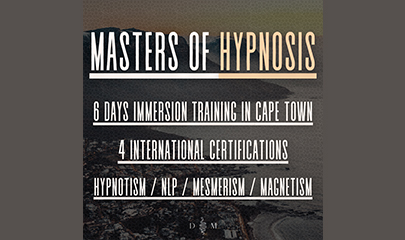 MASTERS OF HYPNOSIS Course 2023 By David Mears
1 × $233,00
MASTERS OF HYPNOSIS Course 2023 By David Mears
1 × $233,00 -
×
 Persuasion In Action Total Immersion Video Footage Collection By Ross Jeffries
1 × $50,00
Persuasion In Action Total Immersion Video Footage Collection By Ross Jeffries
1 × $50,00 -
×
 The Performance Stretch System Level 1 By The Stretch Therapists
1 × $139,00
The Performance Stretch System Level 1 By The Stretch Therapists
1 × $139,00 -
×
 The Power of Boldness 2023 By Naveen Jain - MindValley
1 × $6,00
The Power of Boldness 2023 By Naveen Jain - MindValley
1 × $6,00 -
×
 The Bookkeeping Business Accelerator By Serena Shoup – The Ambitious Bookkeeper
1 × $139,00
The Bookkeeping Business Accelerator By Serena Shoup – The Ambitious Bookkeeper
1 × $139,00 -
×
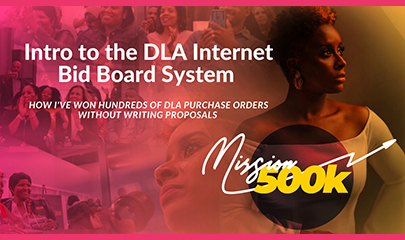 Intro To The Dla Internet Bid Board System (Dibbs) By Sirena Thomas
1 × $622,00
Intro To The Dla Internet Bid Board System (Dibbs) By Sirena Thomas
1 × $622,00 -
×
 6 Figure Instagram Content By Haley & Madison - Maha Copy
1 × $23,00
6 Figure Instagram Content By Haley & Madison - Maha Copy
1 × $23,00 -
×
 The Holy Land Revealed By Jodi Magness
1 × $5,00
The Holy Land Revealed By Jodi Magness
1 × $5,00 -
×
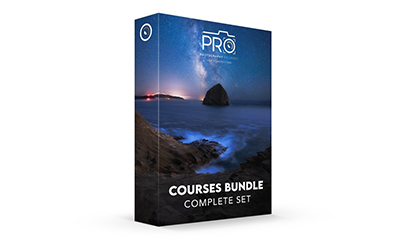 The Landscape Photography Bundle By John Weatherby
1 × $46,00
The Landscape Photography Bundle By John Weatherby
1 × $46,00 -
×
 Learn the Unity 3D Shuriken Particle System By Stone River eLearning
1 × $6,00
Learn the Unity 3D Shuriken Particle System By Stone River eLearning
1 × $6,00 -
×
 Fight Like An Old Man - Digital Download By Russell Stutely
1 × $78,00
Fight Like An Old Man - Digital Download By Russell Stutely
1 × $78,00 -
×
 Scale with Courses By Laurie Burrows
1 × $179,00
Scale with Courses By Laurie Burrows
1 × $179,00 -
×
 Cognomovement An Energy Healing System With Bill McKenna and Liz Larson - The Shift Network
1 × $46,00
Cognomovement An Energy Healing System With Bill McKenna and Liz Larson - The Shift Network
1 × $46,00 -
×
 Million Dollar Masterclass By Eileen Wilder
1 × $85,00
Million Dollar Masterclass By Eileen Wilder
1 × $85,00 -
×
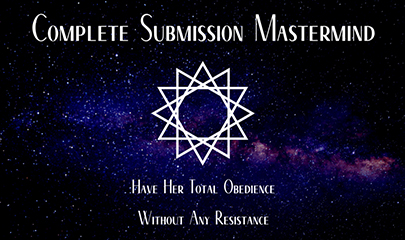 Complete Submission Mastermind By Veronika
1 × $194,00
Complete Submission Mastermind By Veronika
1 × $194,00 -
×
 CopyThinking 2023 And 2024 By George Ten
1 × $23,00
CopyThinking 2023 And 2024 By George Ten
1 × $23,00 -
×
 Cultural Literacy for Religion: Everything the Well-Educated Person Should Know By Mark Berkson
1 × $5,00
Cultural Literacy for Religion: Everything the Well-Educated Person Should Know By Mark Berkson
1 × $5,00 -
×
 Rocket Ship Buy - Short Signal By Gareth Soloway - InTheMoneyStocks
1 × $31,00
Rocket Ship Buy - Short Signal By Gareth Soloway - InTheMoneyStocks
1 × $31,00 -
×
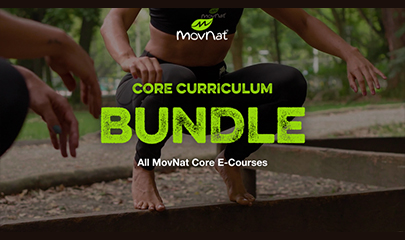 MovNat Core Curriculum Bundle By MovNat
1 × $194,00
MovNat Core Curriculum Bundle By MovNat
1 × $194,00 -
×
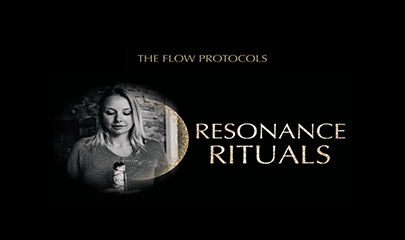 Resonance Rituals 2023 By Cat Howell
1 × $39,00
Resonance Rituals 2023 By Cat Howell
1 × $39,00 -
×
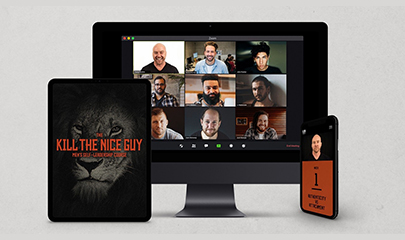 The Kill The Nice Guy - The Warrior By Traver Boehm
1 × $109,00
The Kill The Nice Guy - The Warrior By Traver Boehm
1 × $109,00 -
×
 Course Secrets by Russell Brunson
1 × $22,00
Course Secrets by Russell Brunson
1 × $22,00 -
×
 Toast FX Course
1 × $5,00
Toast FX Course
1 × $5,00 -
×
 Product Alliance Full Library Access Pass By Product Alliance
1 × $202,00
Product Alliance Full Library Access Pass By Product Alliance
1 × $202,00 -
×
 VIRTUOSITY by Scot McKay
1 × $23,00
VIRTUOSITY by Scot McKay
1 × $23,00 -
×
 This Day in History: August By Wondrium
1 × $5,00
This Day in History: August By Wondrium
1 × $5,00 -
×
 131 Sex Games & Erotic Role Plays for Couples by Elizabeth Cramer
1 × $5,00
131 Sex Games & Erotic Role Plays for Couples by Elizabeth Cramer
1 × $5,00 -
×
 6th Dimension Lifetime Access By Elisa Canali
1 × $23,00
6th Dimension Lifetime Access By Elisa Canali
1 × $23,00 -
×
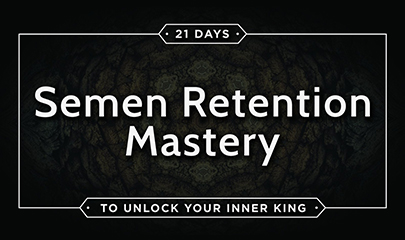 Semen Retention Mastery By Taylor Johnson
1 × $23,00
Semen Retention Mastery By Taylor Johnson
1 × $23,00 -
×
 Sex and Love by Francesco Alberoni
1 × $5,00
Sex and Love by Francesco Alberoni
1 × $5,00 -
×
 Your Most Profitable Quarter Yet By Alyssa Coleman
1 × $23,00
Your Most Profitable Quarter Yet By Alyssa Coleman
1 × $23,00 -
×
 Ignore & Score - How to Get the Girl: Dating Mindsets Explained by Robert Belland
1 × $5,00
Ignore & Score - How to Get the Girl: Dating Mindsets Explained by Robert Belland
1 × $5,00 -
×
 Human Design Business Kickstart Bundle 2024 By Becca Francis
1 × $78,00
Human Design Business Kickstart Bundle 2024 By Becca Francis
1 × $78,00 -
×
 Myth in Human History By Dr Grant Voth
1 × $5,00
Myth in Human History By Dr Grant Voth
1 × $5,00 -
×
 The History and Achievements of the Islamic Golden Age By Eamonn Gearon
1 × $5,00
The History and Achievements of the Islamic Golden Age By Eamonn Gearon
1 × $5,00 -
×
 Enigma 0 The Principles of Zepar By Arash Dibazar
1 × $5,00
Enigma 0 The Principles of Zepar By Arash Dibazar
1 × $5,00 -
×
 Ghost Hunting & Paranormal Investigation with your Pendulum By Pendulum Alchemy
1 × $31,00
Ghost Hunting & Paranormal Investigation with your Pendulum By Pendulum Alchemy
1 × $31,00 -
×
 Product Marketing Bootcamp By Melinda Chung
1 × $85,00
Product Marketing Bootcamp By Melinda Chung
1 × $85,00 -
×
 Small Account Futures (Elite Package) By Joe Rokop - Simpler Trading
1 × $23,00
Small Account Futures (Elite Package) By Joe Rokop - Simpler Trading
1 × $23,00 -
×
 The Vert Code Elite By PJF Performance
1 × $23,00
The Vert Code Elite By PJF Performance
1 × $23,00 -
×
 Stories in Miniature by Henneke Duistermaat
1 × $54,00
Stories in Miniature by Henneke Duistermaat
1 × $54,00 -
×
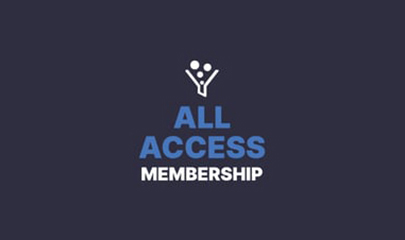 Convology Pro - All Access Membership
1 × $23,00
Convology Pro - All Access Membership
1 × $23,00 -
×
 AI Email Story Wizard Workshop By Bill Mueller
1 × $23,00
AI Email Story Wizard Workshop By Bill Mueller
1 × $23,00 -
×
 The Sensual Alchemy Masterclass - For Men By Yuval Man
1 × $46,00
The Sensual Alchemy Masterclass - For Men By Yuval Man
1 × $46,00 -
×
 9 Day Calendar Deep Dive 2023 By Jay Bailey - Sheridan Options Mentoring
1 × $31,00
9 Day Calendar Deep Dive 2023 By Jay Bailey - Sheridan Options Mentoring
1 × $31,00 -
×
 Association Domination Masterclass By Perry Belcher
1 × $6,00
Association Domination Masterclass By Perry Belcher
1 × $6,00 -
×
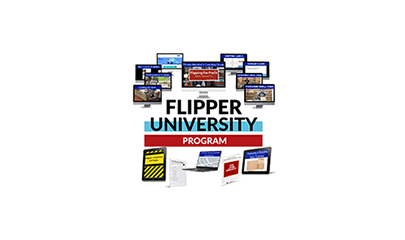 Flipper University - Pro Flipper PLUS Package (Beg, Intermediate, Freight) By Flea Market Flipper
1 × $209,00
Flipper University - Pro Flipper PLUS Package (Beg, Intermediate, Freight) By Flea Market Flipper
1 × $209,00 -
×
 Compound Butterfly Blueprint (Elite Package) By Allison Ostrander - Simpler Trading
1 × $62,00
Compound Butterfly Blueprint (Elite Package) By Allison Ostrander - Simpler Trading
1 × $62,00 -
×
 Photoshop CC For The Web By Stone River eLearning
1 × $6,00
Photoshop CC For The Web By Stone River eLearning
1 × $6,00 -
×
 Kubera Energy Field - Kubera Mantra Energised 1008x By Spirituality Zone
1 × $15,00
Kubera Energy Field - Kubera Mantra Energised 1008x By Spirituality Zone
1 × $15,00 -
×
 Options Trading Workshop On Demand By Affordable Financial Education
1 × $69,00
Options Trading Workshop On Demand By Affordable Financial Education
1 × $69,00 -
×
 7 Figure Sales Training and Script Bundle By Eric Cline
1 × $319,00
7 Figure Sales Training and Script Bundle By Eric Cline
1 × $319,00 -
×
 Portfolio Investing By Ron Bertino
1 × $54,00
Portfolio Investing By Ron Bertino
1 × $54,00 -
×
 AI NSFW Mastery - Unlock the Secrets of AI Porn! By Only AI
1 × $23,00
AI NSFW Mastery - Unlock the Secrets of AI Porn! By Only AI
1 × $23,00 -
×
 Destination Girlfriend By Jon Sinn
1 × $6,00
Destination Girlfriend By Jon Sinn
1 × $6,00 -
×
 7 Powers Package By John Demartini
1 × $31,00
7 Powers Package By John Demartini
1 × $31,00 -
×
 The Money Muse Experience By Elisa Canali
1 × $31,00
The Money Muse Experience By Elisa Canali
1 × $31,00 -
×
 Writing Great Chapters By Daniel David Wallace
1 × $23,00
Writing Great Chapters By Daniel David Wallace
1 × $23,00 -
×
 MovNat Mobility Bundle By MovNat
1 × $54,00
MovNat Mobility Bundle By MovNat
1 × $54,00 -
×
 100K Day Setup Elite Package By TG Watkins – Simpler Trading
1 × $69,00
100K Day Setup Elite Package By TG Watkins – Simpler Trading
1 × $69,00 -
×
 Natural Instinct Method - RSD Nation
1 × $5,00
Natural Instinct Method - RSD Nation
1 × $5,00 -
×
 Hypnosis: Master Self Hypnosis Now! by James Metcalf
1 × $5,00
Hypnosis: Master Self Hypnosis Now! by James Metcalf
1 × $5,00 -
×
 The Shopify Program By April Hardy - Elevate With Ecommerce
1 × $23,00
The Shopify Program By April Hardy - Elevate With Ecommerce
1 × $23,00 -
×
 7 Days To A Kick Ass New You By Regan Hillyer
1 × $85,00
7 Days To A Kick Ass New You By Regan Hillyer
1 × $85,00 -
×
 Master Lover 2023 - Secrets For Mystical Sexual Union By Tantra Garden
1 × $69,00
Master Lover 2023 - Secrets For Mystical Sexual Union By Tantra Garden
1 × $69,00 -
×
 Bookkeeping for Etsy Sellers By Lauren Venell
1 × $5,00
Bookkeeping for Etsy Sellers By Lauren Venell
1 × $5,00 -
×
 Super Good Luck Savings Bundle By Hyptalk
1 × $78,00
Super Good Luck Savings Bundle By Hyptalk
1 × $78,00 -
×
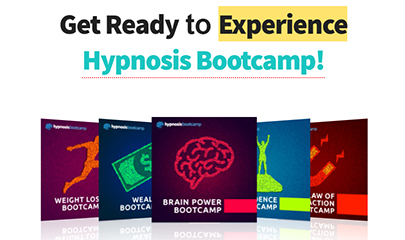 Hypnosis Bootcamp - 5 Course Bundle
1 × $139,00
Hypnosis Bootcamp - 5 Course Bundle
1 × $139,00 -
×
 eCom Fast Track Bundle By Justin Phillips
1 × $15,00
eCom Fast Track Bundle By Justin Phillips
1 × $15,00 -
×
 Opthink By Everyday Spy
1 × $69,00
Opthink By Everyday Spy
1 × $69,00 -
×
 4 Product Bundle By Allie Bloyd
1 × $39,00
4 Product Bundle By Allie Bloyd
1 × $39,00
The Art of Negotiating the Best Deal By Seth Freeman
$239,00 $5,00
SKU: KOB.53211tpP7Im
Category: Personal Development
Tags: Seth Freeman, The Art of Negotiating the Best Deal
The Art of Negotiating the Best Deal: A Review – Immediate Download!
Let’s embark on a captivating adventure to uncover remarkable insights that spark your curiosity and elevate your understanding

The Art of Negotiating the Best Deal By Seth Freeman
Overview

The Art of Negotiating the Best Deal: A Review
Negotiation is an intrinsic aspect of human interaction; it shapes our dealings in both personal and professional spheres. “The Art of Negotiating the Best Deal” by Seth Freeman emerges as a beacon for those who seek to refine their negotiation skills. This course, part of the esteemed Great Courses series, promises to elevate the understanding of negotiation, turning what many perceive as a confrontational battlefield into a collaborative journey. With a focus on actionable strategies, accompanied by academic insights and practical applications, this course garners acclaim for its innovative approach to negotiation. However, like any educational resource, it is not devoid of critique. This review delves into the course’s strengths, weaknesses, and the transformative principles it imparts.
Overview of the Course
Content and Structure
Seth Freeman’s course is structured to cater to a diverse audience, ranging from novices to seasoned professionals. Its organization ensures that learners begin with foundational concepts and gradually progress to more complex negotiation tactics. The early chapters focus on the psychology of negotiation understanding emotions, motivations, and the underlying needs of all parties involved. Freeman poses the idea that negotiation should not be viewed as a mere contest with winners and losers, but rather as a mutual journey toward optimal outcomes. This approach invites participants to engage in discussions that emphasize common ground while also navigating the potential pitfalls that often arise during negotiations.
Key Themes and Techniques
The course introduces key concepts such as BATNA (Best Alternative to a Negotiated Agreement), which serves as a crucial element for effective negotiation. BATNA lays the groundwork for understanding one’s options outside the current negotiation, empowering negotiators to make informed decisions and avoid unfavorable agreements. Freeman illustrates this concept through relatable examples, allowing even beginners to grasp its significance. The use of metaphors, such as comparing negotiation tactics to chess strategies, enhances the comprehension of balancing offense and defense in discussions, showcasing that preparation and foresight are vital.
Freeman also emphasizes the importance of active listening and empathy in negotiations. By fostering a collaborative atmosphere where all parties feel heard and valued, negotiators can build rapport and drive toward mutually beneficial agreements. This focus on human connection not only differentiates Freeman’s teaching style but also aligns with contemporary views on negotiation shifting the paradigm from adversarial tactics to cooperative engagement.
Strengths of the Course
Practical Application
Among the myriad of reasons to recommend Freeman’s course, one stands out: its practical applicability. The numerous real-life scenarios provided throughout the lessons enable learners to visualize how negotiation techniques manifest in everyday contexts. For instance, a discussion surrounding a car purchase illustrates not only the negotiation principles at play but also the emotional undercurrents that can influence outcomes. These vivid examples bridge the gap between theory and practice, showing participants how to apply learned techniques in their negotiations.
Engaging Delivery and Accessibility
Freeman’s engaging delivery has garnered praise from various reviewers. He blends humor and relatable anecdotes with substantial academic content, creating a learning experience that is both enjoyable and enlightening. Furthermore, the course’s availability in audio and DVD formats broadens its accessibility. Whether commuting, exercising, or relaxing at home, individuals can immerse themselves in the strategies taught by Freeman, making it convenient for learners with busy schedules.
Insights Beyond the Basics
The course does not shy away from delving into advanced negotiation frameworks, particularly from chapter eight onward. This section introduces learners to dynamic frameworks, equipping them with tools to tackle complex negotiations across various contexts. These advanced strategies are particularly beneficial for professionals engaged in high-stakes negotiations, providing insights that could mean the difference between success and failure.
Areas for Improvement
Repetition in Early Chapters
While the course excels in many areas, some users have noted a certain level of repetition in the early chapters. The foundational concepts, while essential, could potentially be condensed to maintain the learner’s engagement throughout the introductory segments. Some feel that the true essence of Freeman’s teachings emerges later, particularly when engaging more challenging negotiation dynamics.
Specific Examples Over Generalizations
Another critique centers around the examples used during the initial chapters. Rather than a broad overview of negotiation contexts, the course could enhance its instructional effectiveness by incorporating more specific examples relevant to various sectors such as business, law, and interpersonal relationships. By diversifying these illustrations, learners could deepen their understanding of how the course content can be applied across multiple domains.
Key Takeaways and Lessons from the Course
Strategies for Successful Negotiation
The course encapsulates various strategies that can significantly enhance one’s negotiation skills. Here’s a summary of key lessons learned:
- Preparation is Key: Understanding your BATNA and the interests of the other party is fundamental.
- Build Rapport: Establishing a connection through active listening and empathy can pave the way for successful negotiations.
- Flexibility: Be willing to adjust your approach based on evolving conversations and contexts.
- Focus on Solutions: Rather than fixating on positions, aim to discover solutions that satisfy all parties involved.
Concluding Thoughts
Overall, “The Art of Negotiating the Best Deal” stands out as a well-rounded and impactful resource for individuals at all levels of negotiation experience. It skillfully blends from scientific principles to practical techniques, presenting a contemporary view that embraces collaboration rather than manipulation. While there are areas for improvement, particularly in managing content delivery and diversifying examples, the myriad insights it presents make it a valuable asset for anyone looking to enhance their negotiation skills.
In a world where negotiation is often viewed through a combative lens, Freeman invites us to reconsider our approach. The essence of negotiation much like the intricate dance of partners lies in understanding, adapting, and working toward a shared goal. With its transformative potential, this course provides the tools necessary to navigate the intricate choreography that is negotiation, allowing us to emerge victorious not just in deals but in relationships as well.
Frequently Asked Questions:
Innovation in Business Models: We use a group purchase approach that enables users to split expenses and get discounted access to well-liked courses. Despite worries regarding distribution strategies from content creators, this strategy helps people with low incomes.
Legal Aspects to Take into Account: Our operations’ legality entails several intricate considerations. There are no explicit resale restrictions mentioned at the time of purchase, even though we do not have the course developers’ express consent to redistribute their content. This uncertainty gives us the chance to offer reasonably priced instructional materials.
Quality Control: We make certain that every course resource we buy is the exact same as what the authors themselves provide. It’s crucial to realize, nevertheless, that we are not authorized suppliers. Therefore, the following are not included in our offerings: – Live coaching sessions or calls with the course author.
– Entry to groups or portals that are only available to authors.
– Participation in closed forums.
– Straightforward email assistance from the writer or their group.
Our goal is to lower the barrier to education by providing these courses on our own, without the official channels’ premium services. We value your comprehension of our distinct methodology.
Be the first to review “The Art of Negotiating the Best Deal By Seth Freeman” Cancel reply
You must be logged in to post a review.
Related products
Personal Development
Personal Development
Human Design Business Kickstart Bundle 2024 By Becca Francis
Personal Development
The Performance Stretch System Level 1 By The Stretch Therapists
Personal Development
Abundance And Money Workshop Replay By Samantha Chung & Gina Bourne
Personal Development




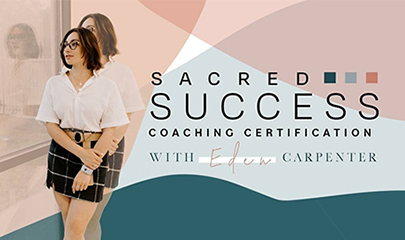



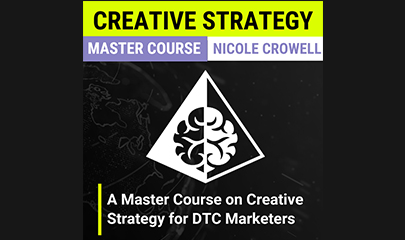


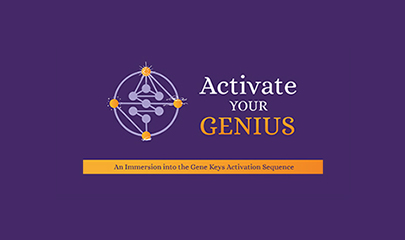

Reviews
There are no reviews yet.